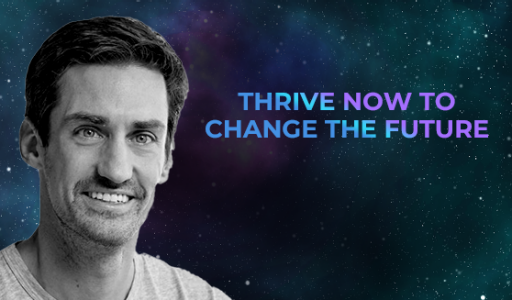
Why sustainability is the heart of the smart city revolution
The smart cities of the future will use tech to lower emissions, cut urban temperatures, and improve quality of life in highly populated areas.


What legacy are you creating? And are you happy with it? “Since March 2020 we’ve witnessed one of the largest, fastest changes in consumer behaviour in history. And as customers rapidly started shifting their purchases online and started taking part in the digital economy, businesses were forced to respond quickly to remain relevant.”
This was how Nicole Cacal (CEO at Forbes Ignite) opened her interview with Guillaume Pousaz (CEO at checkout.com) at #LEAP22. It’s a reality we’re all familiar with at this point: things have changed fast, and digital commerce tech has had to shift gears to meet consumer demand.
At the helm of one of the leading online payment companies in the world, Pousaz has been responsible not only for handling digital acceleration at checkout.com, but also for helping major merchant partners stay relevant for their customers.
“We’ve always been a payment partner, that’s the way we see it,” Pousaz said. “We think that merchants should build a value proposition to their customers and not build the payment infrastructures.”
Building those infrastructures is exactly what checkout.com does – for global clients including Facebook, TikTok, Netflix, Klarna, Samsung, Adidas, Sony, and more. So Pousaz is uniquely placed to offer real insights into how businesses can thrive in our digital future.
According to Pousaz, “Thriving in the digital economy is basically capturing where the world is going.”
The world is changing, but that’s old news. Yes, digital adoption has accelerated by several years since COVID-19, but society and technology have always been in flux. From the moment homo erectus first invented tools to make fire over a million years ago; to the first irrigation systems that arose simultaneously in Mesopotamia and Egypt around 6000 BCE; to the invention of Nikolaus Otto’s internal-combustion engine in 1876; humans (and pre-human species) have always been developing tech that has catalysed huge leaps and pivots in the way we live our lives.
Perhaps things are changing faster than ever before, or perhaps not. But Pousaz is right – thriving (from a business perspective) is about seeing just a little further into the future, and moving in the direction that your consumers are moving in. If you can capture an opportunity in this way, you’ll do well.
Speaking of the shift to digital in particular, Pousaz said “one of the key things that we were really wondering is, are things going to slow down, are they going to go back to normal. And I think when you shift a behaviour, when you shift a habit…there’s no going back.”
For businesses to succeed in a digital landscape they need to have streamlined systems for payment management, which is more complicated than it might look to the uninitiated eye. “The reason there is so much complexity in payments is that every single country has different payment methods on what we call pay-in (the ability to capture revenue), and different payment methods on the pay-out,” Pousaz noted.
Global merchants don’t want to create unique payment setups for each country they trade in. “So,” Pousaz said, “they need somebody who is going to basically offer all the pay-in methods, all the pay-out methods, single API, single reporting, extracting all this country-specific complexity.” On top of all of that, checkout.com stays on top of country-by-country regulation and legislation to ensure that each merchant is following national rules – for example, adhering to stringent customer authentication processes for payments in Europe.
Merchants want to build a business. They want to process more payments, and do it as simply and efficiently as possible. So outsourcing payments to a provider that can do all of that is a no-brainer. Pousaz and his team support merchants with their current needs, but he also looks into the future for them – factoring in the future of cryptocurrency and fintech evolution to enable his merchants to stay ahead.
For Pousaz, helping businesses thrive isn’t only about the bottom line. It’s also about the legacy he’s striving to leave behind.
“I think you want to have a positive impact on society, you want to try to drive change, you have a responsibility as a tech company to do that. I think it’s very important…you know, people focus on the valuations and the headline numbers, but I like to think about what we are doing: we’re creating jobs in an emerging market, we’re allowing merchants to create those jobs.”
Today’s digital tech will leave a legacy. The companies and innovators driving change right now need to look into the future not only to capture new opportunities, but also to envision how their current work will impact future citizens.

The smart cities of the future will use tech to lower emissions, cut urban temperatures, and improve quality of life in highly populated areas.

Discover the cities that rank highly for smart city preparedness, and learn why locally relevant innovation is more important than cutting-edge tech.

If you’ve ever thought about becoming a tech investor, read this – learn why investors are the quiet force shaping the future of the industry.

The smart cities of the future will use tech to lower emissions, cut urban temperatures, and improve quality of life in highly populated areas.

Discover the cities that rank highly for smart city preparedness, and learn why locally relevant innovation is more important than cutting-edge tech.

If you’ve ever thought about becoming a tech investor, read this – learn why investors are the quiet force shaping the future of the industry.